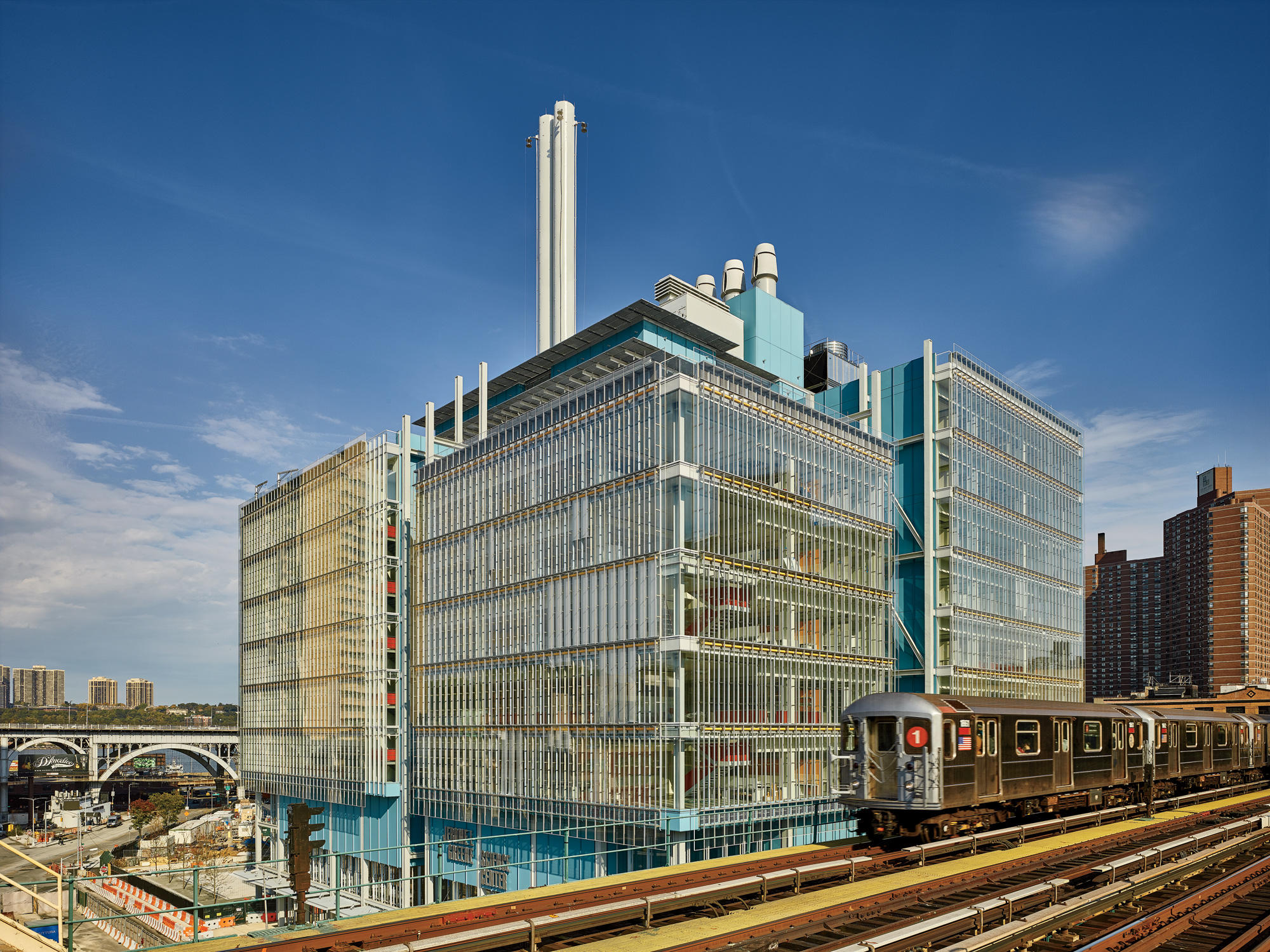University leaders recently dedicated the new Manhattanville campus, now taking shape west of Broadway above 125th Street — an expansion that marks Columbia’s most transformational campus development since it moved to Morningside Heights in 1897.
On October 24, President Lee C. Bollinger led a ceremony attended by distinguished faculty, deans, and students, as well as local civic and community leaders and internationally renowned architect Renzo Piano of Renzo Piano Building Workshop, which designed the campus master plan with Skidmore, Owings & Merrill. Piano also designed the first buildings to rise on the campus: the Jerome L. Greene Science Center, which houses the Mortimer B. Zuckerman Mind Brain Behavior Institute, and the Lenfest Center for the Arts.
The Greene Science Center and the Lenfest Center will officially open in the spring. A third building on the Manhattanville campus, the University Forum and Academic Conference Center, also designed by Piano’s firm, is under construction now and is expected to open in 2018. Soon to begin construction is a new home for Columbia Business School in two buildings: the Henry R. Kravis Building and the Ronald O. Perelman Center for Business Innovation, designed by Diller Scofidio + Renfro in collaboration with FXFowle.
With 6.8 million square feet of new academic space, the Manhattanville campus will be realized over the course of the next several decades in the former industrial area on the far west side of Manhattan, between 125th Street and 133rd Street.
The new campus is designed to have no barriers — either between academic disciplines or between Columbia and the West Harlem community. The academic facilities will host interdisciplinary programs, and the amply landscaped grounds will be woven into the existing street grid with no walls or gates. Buildings will be open to the public and host community programming. The Jerome L. Greene Science Center, for example, will house the Education Lab, where local K–12 students and others can learn about brain science. The Wellness Center will offer free health screenings and disease-prevention services.
“When we committed ourselves to the Manhattanville campus in West Harlem, we knew it would be essential for Columbia to use this opportunity to build exceptional spaces for our mission of teaching, research, and creativity,” said Bollinger. “We are creating a different kind of academic space than in the past, designed for the cross-disciplinary interaction that is crucial to new knowledge, within an open, accessible urban campus that encourages the University and community to engage with and strengthen one another.”



